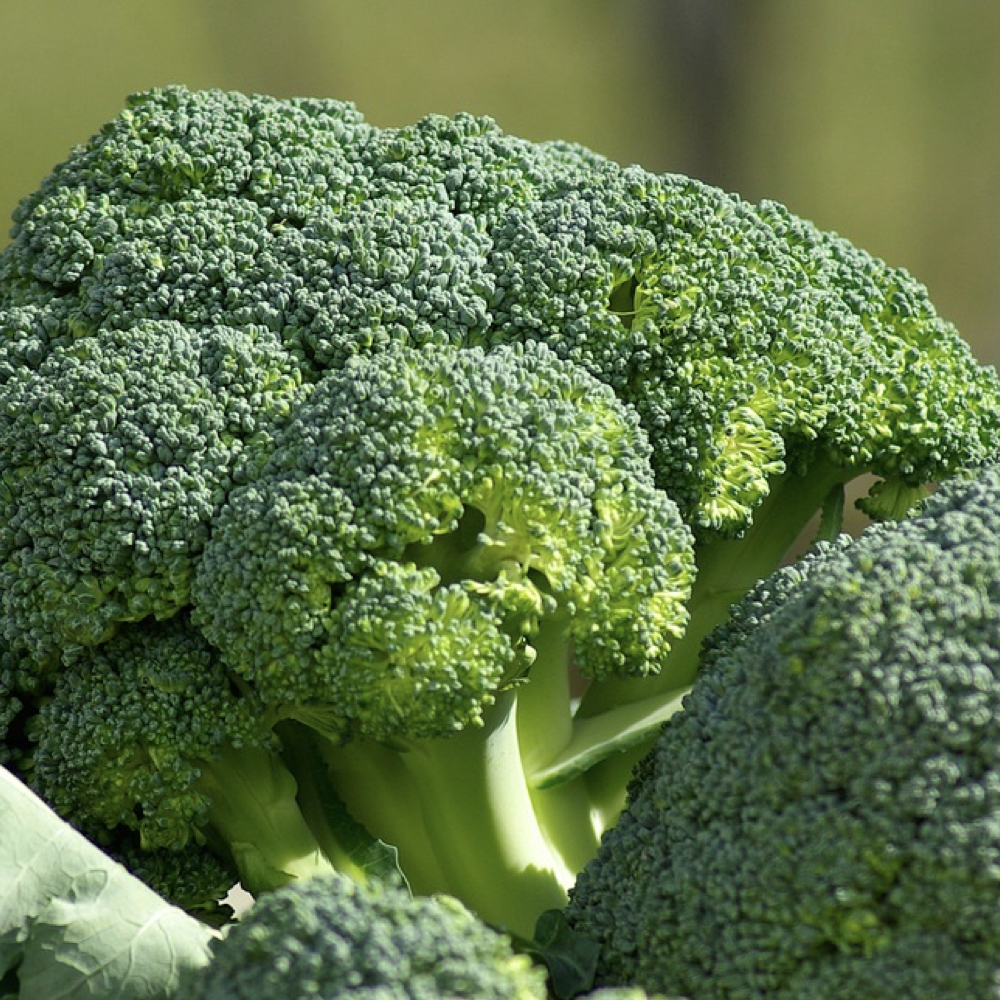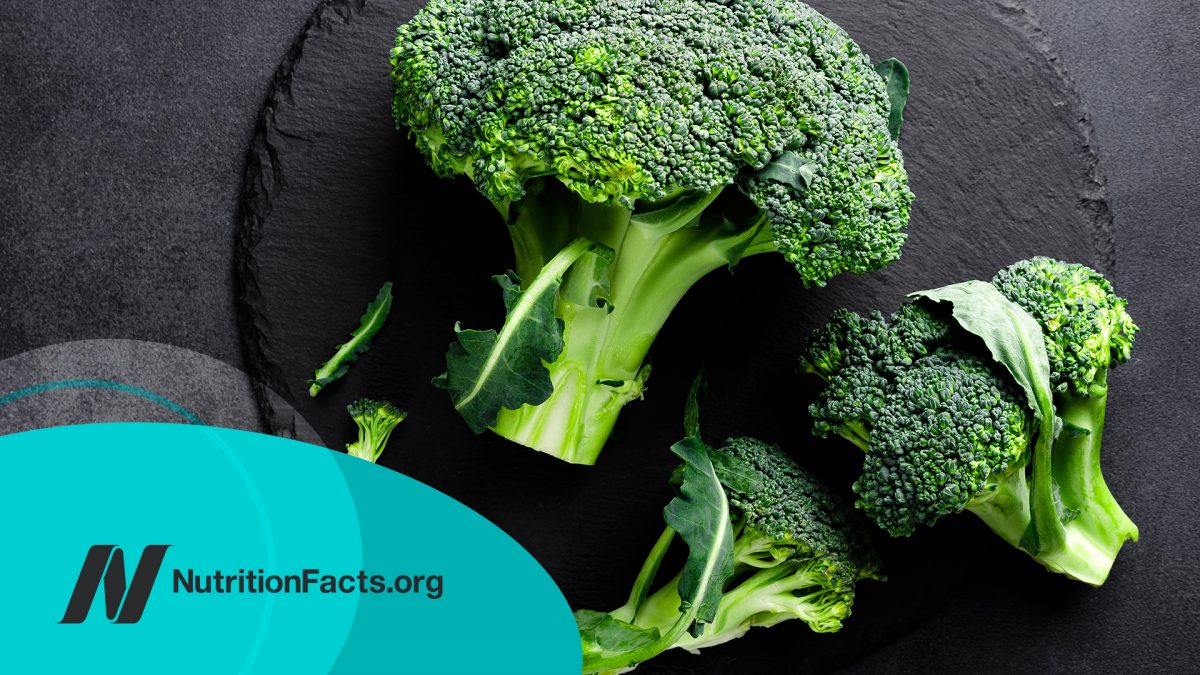
Broccoli
When I used to teach medical students at Tufts, I gave a lecture about this amazing new therapeutic called “iloccorB.” I’d talk about all the evidence supporting it, the great things it could do, and its excellent safety profile. Just as the students would start scrambling to buy stock in the company and prescribe it to their future patients, I’d do the big reveal. Apologizing for my “dyslexia,” I would admit that I’d gotten it backward. All this time, I had been talking about broccoli.
I mentioned broccoli more than any other food in my book How Not to Die, and for good reason. Cruciferous vegetables like broccoli can potentially prevent DNA damage and metastatic cancer spread, activate defenses against pathogens and pollutants, help to prevent lymphoma, boost your liver detox enzymes, target breast cancer stem cells, and reduce the risk of prostate cancer progression. The component responsible for these benefits is thought to be sulforaphane, which is formed almost exclusively in cruciferous vegetables.
This is why broccoli and other cruciferous vegetables get their own spot on my Daily Dozen. I recommend at least one serving a day (typically a half cup) of crucifers and at least two additional servings of greens a day, cruciferous or otherwise. Serving sizes for other greens and vegetables are a cup for raw leafy vegetables, a half cup for other raw or cooked vegetables, and a quarter cup for dried mushrooms.
For substantiation of any statements of fact from the peer-reviewed medical literature, please see the associated videos below.
Image Credit: Pixabay. This image has been modified.
Popular Videos for Broccoli

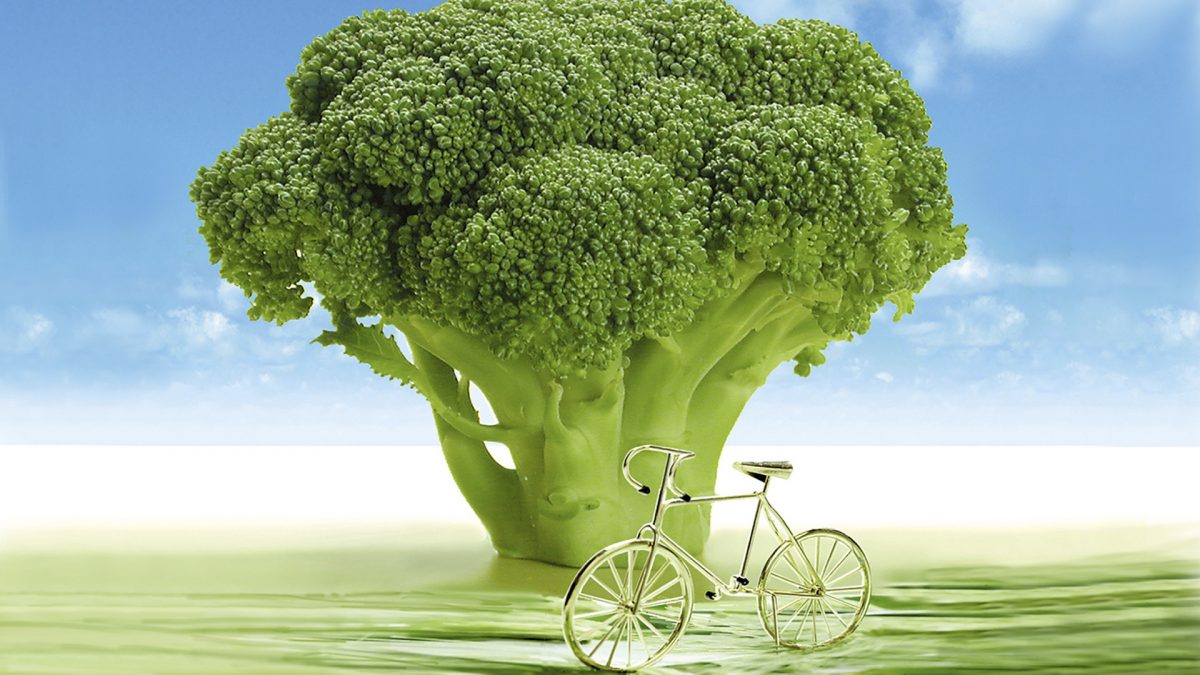
Best Food to Counter the Effects of Air Pollution
There is a food that offers the best of both worlds—significantly improving our ability to...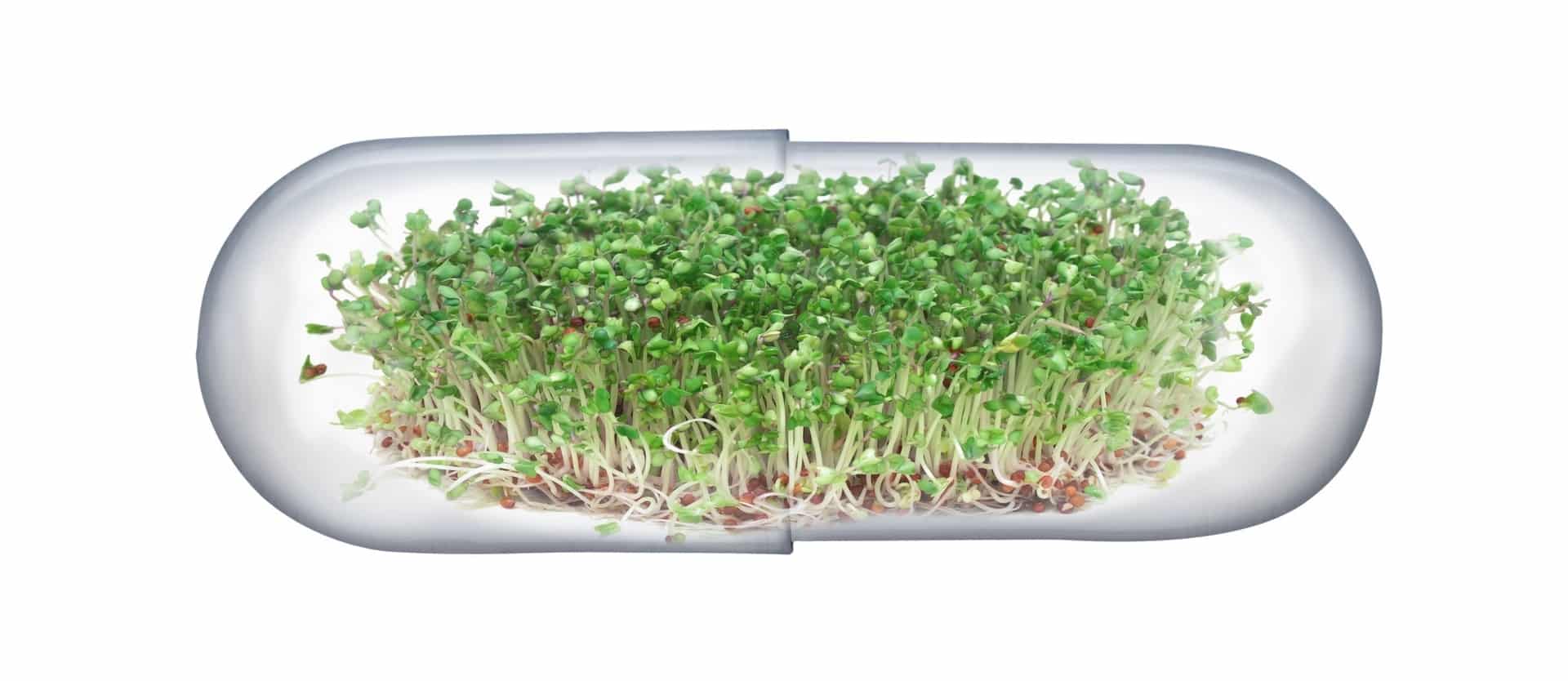
Broccoli: Sprouts vs. Supplements
Broccoli sprouts are compared to “Broccomax” supplements.
The Broccoli Receptor: Our First Line of Defense
There is a receptor in our intestines activated by phytonutrients in cruciferous vegetables that boosts...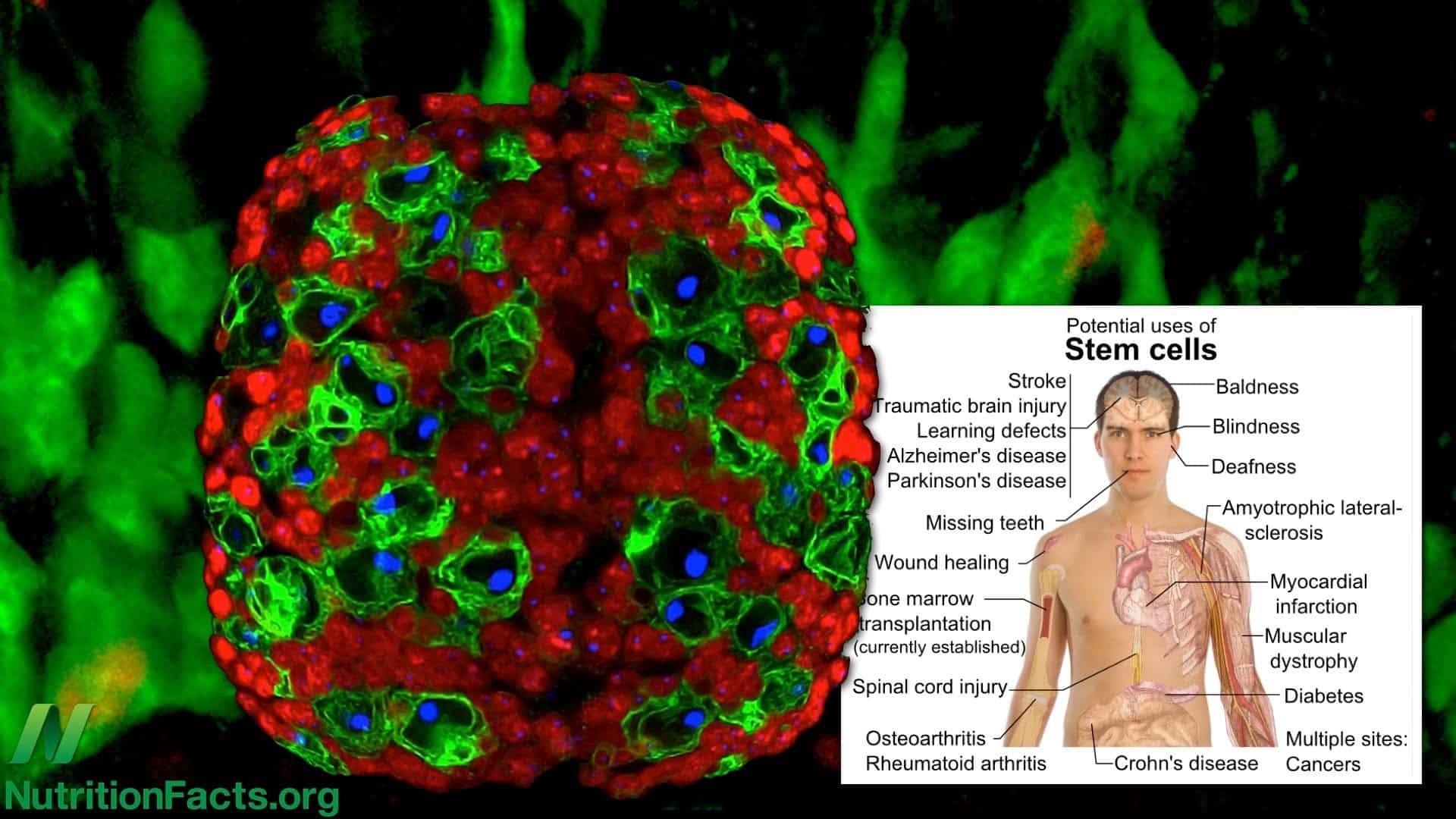
Broccoli vs. Breast Cancer Stem Cells
A new theory of cancer biology—cancer stem cells—and the role played by sulforaphane, a phytonutrient...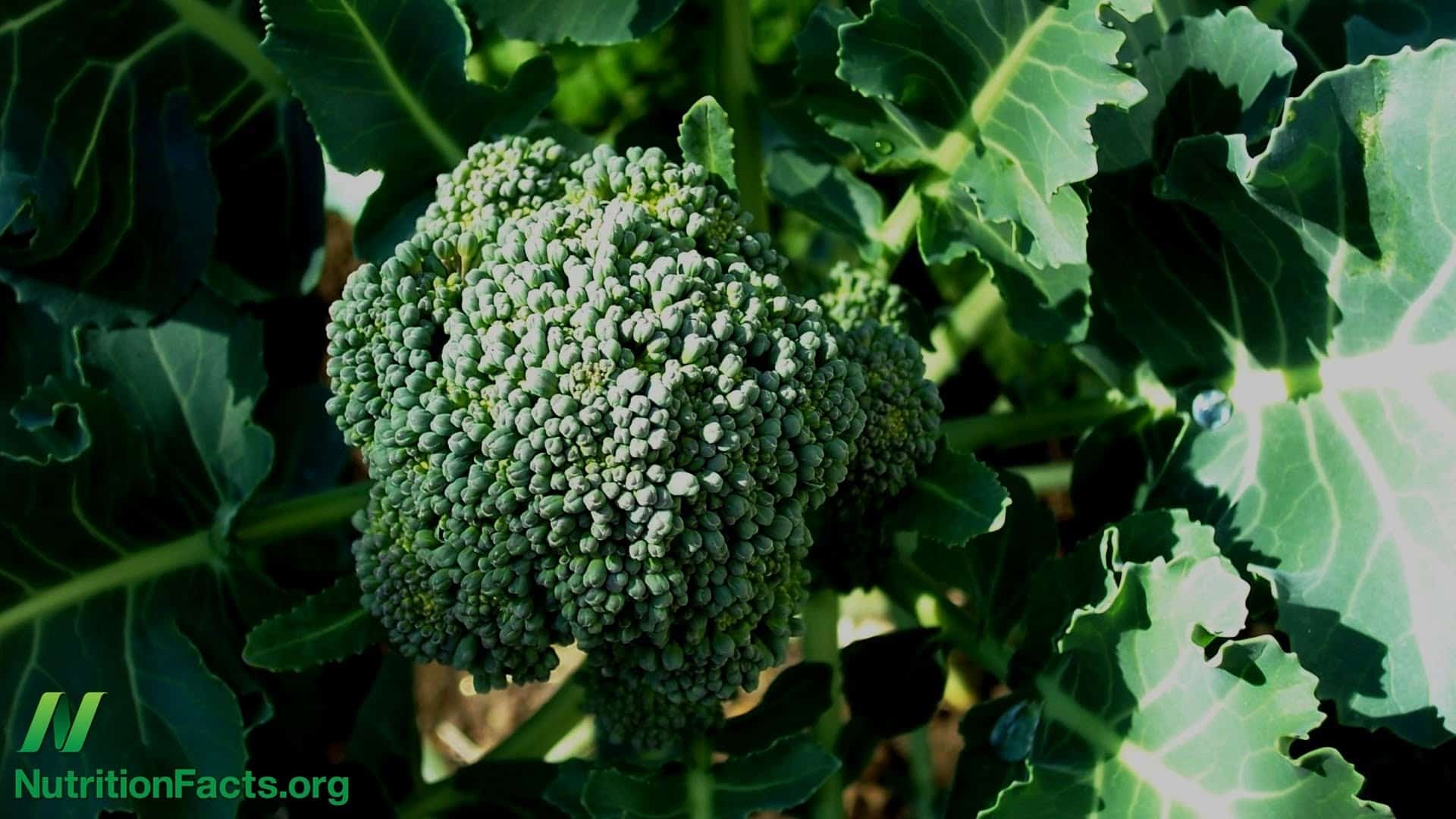
DNA Protection from Broccoli
Eating broccoli appears to make DNA more resistant to damage.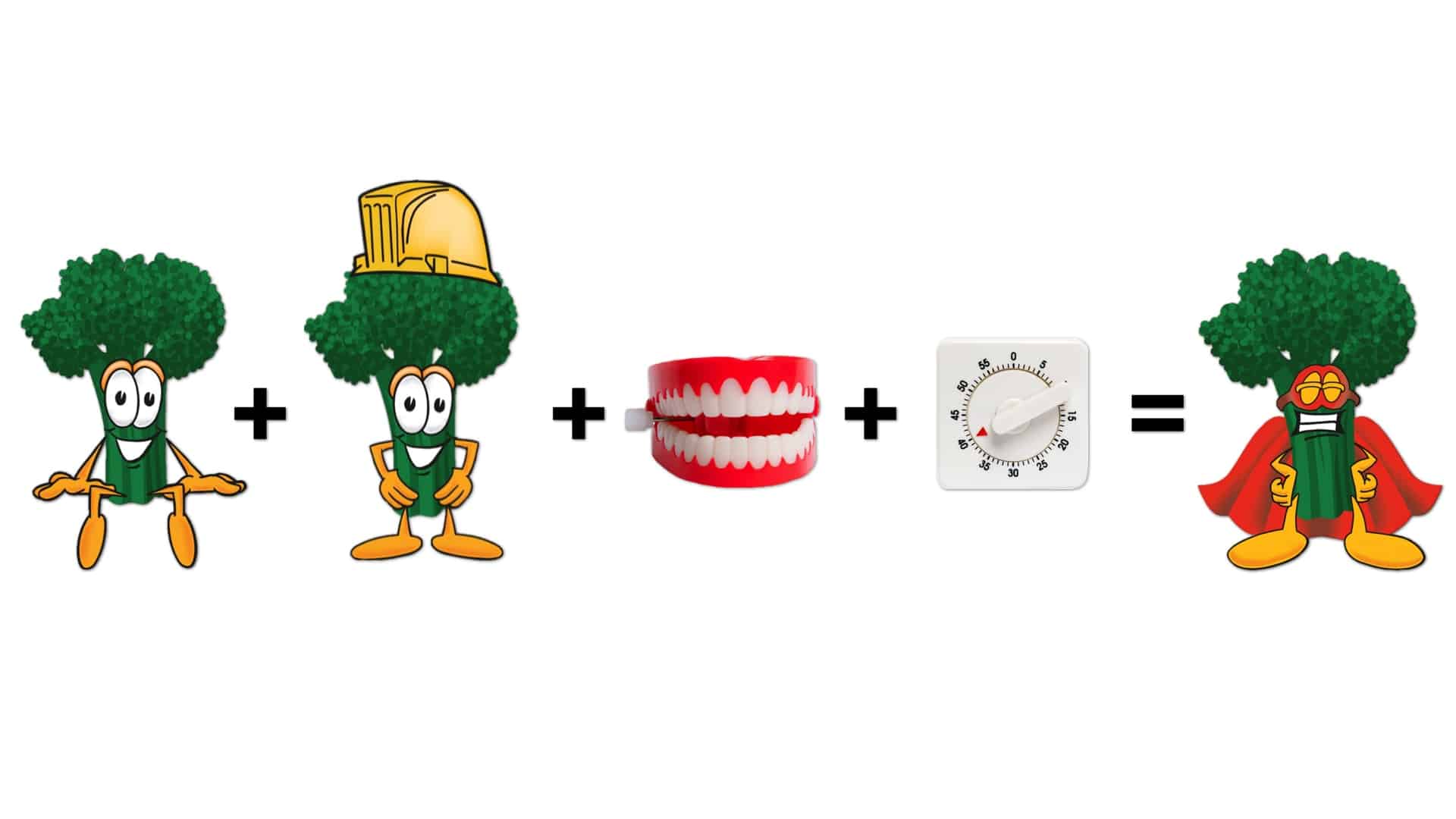
Second Strategy to Cooking Broccoli
Adding myrosinase enzymes in the form of even a pinch of mustard powder to cooked...All Videos for Broccoli
-

How to Get Enough Polyphenols for Life Extension
Is the link between flavonoid consumption and longevity cause-and-effect, and are all sources of flavonoids equally healthy?
-

Risks and Benefits of Nicotinamide Mononucleotide (NMN), a NAD+ Booster
NR may just be a waste of money, safe but ineffective. NMN seems similarly useless in humans, but it may not even be safe.
-

The Best Way to Boost NAD+: Supplements vs. Diet (webinar recording)
The pros and cons of all the NAD+ supplements and what are the ways to boost NAD+ naturally with diet and lifestyle?
-

How to Prevent Wrinkles with Diet
The evidence supports the recommendation to follow a whole food, plant-based diet for healthier looking skin.
-

How to Get Rid of Garlic Breath
After study participants took some garlic, researchers gave them whey protein, lemon juice, green tea, chlorophyll, 7UP soda, a raw pink lady apple, a cooked apple, parsley, spinach, and mint leaves. Which do you think worked best?
-

How to Boost Collagen Synthesis with Diet
Which foods can increase collagen deposition and prevent wrinkles?
-

Which Foods Are the Most Anti-Angiogenic?
For cancer prevention, researchers suggest “constant consumption” of anti-angiogenic foods.
-

Targeting Angiogenesis to Lose Weight
Expanding body fat releases blood supply-generating factors that may end up hooking up tumors, too.
-

Greens, Green Tea, and Nuts Put to the Test for Telomeres
Not all plant foods are linked to less cellular aging based on telomere attrition, and not all animal foods are linked to more.
-

The Impacts of Plant-Based Diets on Breast Cancer and Prostate Cancer
Why do people who eat more plants get less breast and prostate cancer?
-

Potential Vitamin and Mineral Deficiency Risks on a Vegan Diet
What is the best way to get the nutrients of concern on a plant-based diet?
-

The Purported Benefits of Vitamin K2: Should You Take Supplements?
Our body can make vitamin K2 from the K1 in green leafy vegetables.
-

How to Treat H. Pylori Naturally with Diet
What food can eradicate H. pylori in the majority of patients?
-

The Healthiest Type of Potato
Are yellow-fleshed potatoes healthier than white? And, what about the glycoalkaloid toxins?
-

How to Reduce the Glycemic Impact of Potatoes
Broccoli, vinegar, and lemon juice are put to the test to blunt the glycemic index of white potatoes.
-

Fighting the Ten Hallmarks of Cancer with Food
The foundation of cancer prevention is plants, not pills.
-

The Efficacy and Side Effects of Moringa Leaf Powder
Why don’t I recommend moringa?
-

The Benefits of Moringa: Is It the Most Nutritious Food?
Does the so-called miracle tree live up to the hype?
-

The Food That Can Downregulate a Metastatic Cancer Gene
Women with breast cancer should include the “liberal culinary use of cruciferous vegetables.”
-

Benefits of Quinoa for Lowering Triglycerides
How do the nutrition and health effects of quinoa compare to whole grains?
-

Evidence-Based Weight Loss – Live Presentation
In this live presentation, Dr. Greger offers a sneak peek into his book How Not to Diet.
-

Recipe: Veggie Mac & Cheese
A cruciferous spin on macaroni and cheese, this recipe takes comfort food to a whole new level, and is a tasty way to check off a few servings on the Daily Dozen checklist. This recipe comes from Kristina, our Social Media Director.
-

How to Cook Greens
Dark green leafy vegetables are the most nutrient-dense foods on the planet. What’s the best way to prepare them?
-

Best Way to Cook Vegetables
Boiling, steaming, microwaving, air frying, and sous vide cooking are put to the test for nutrient retention.
-

Dr. Greger on Live with Kelly and Ryan
Watch my JanYOUary 2018 segment on Live with Kelly and Ryan.
-

Best Brain Foods: Berries and Nuts Put to the Test
Randomized controlled studies put nuts, berries, and grape juice to the test for cognitive function.
-

How to Win the War on Cancer
How effective is chemotherapy for colon, lung, breast, and prostate cancers?
-

Benefits of Cabbage Leaves on the Knee for Osteoarthritis
Unbelievably, a randomized controlled trial of cabbage leaf wraps for arthritis was published.
-

Shark Cartilage Supplements Put to the Test to Cure Cancer
Shark cartilage supplements carry risks, but so do many cancer treatments. The question is, do they work?
-

Dr. Greger’s Daily Dozen Checklist
In my book How Not to Die, I center my recommendations around a Daily Dozen checklist of everything I try to fit into my daily routine.
-

Exclusion Diets for Eczema
Infants of mothers randomized to cut out eggs, milk, and fish were significantly less likely to have eczema even years later.
-

Lead Contamination in Fish and Game
Most hunters may not be aware about the health risks related to consuming meat from animals shot with lead ammunition.
-

Tomato Sauce vs. Prostate Cancer
What happened when cancer patients were given three quarters of a cup of canned tomato sauce every day for three weeks?
-

The Best Diet for Fibroids
The same diet that helps regulate hormones in women may also reduce exposure to endocrine-disrupting pollutants.
-

Best Foods for Autism
The sulforaphane found in five cents’ worth of broccoli sprouts has been shown to benefit autism in a way no drug ever has in randomized, double-blind, placebo-controlled study.
-

Fighting Autism Brain Inflammation with Food
One food may be able to combat all four purported causal factors of autism: synaptic dysfunction, oxidative stress, mitochondrial dysfunction, and neuroinflammation.
-

Fever Benefits for Autism in a Food
Dramatic improvements in autistic children when they have a fever suggest that the disease may be reversible if one can replicate the phenomenon in other ways.
-

Dr. Greger’s Daily Dozen Checklist
In my book How Not to Die, I center my recommendations around a Daily Dozen checklist of all the things I try to fit into my daily routine.
-

How to Reduce Your TMAO Levels
Should we be concerned about high-choline plant foods, such as broccoli, producing the same toxic TMAO that results from eating high-choline animal foods, such as eggs?
-

Fermented or Unfermented Soy Foods for Prostate Cancer Prevention?
Which appear more protective: fermented soy foods, such as miso and tempeh, or unfermented soy, like tofu and soy milk?
